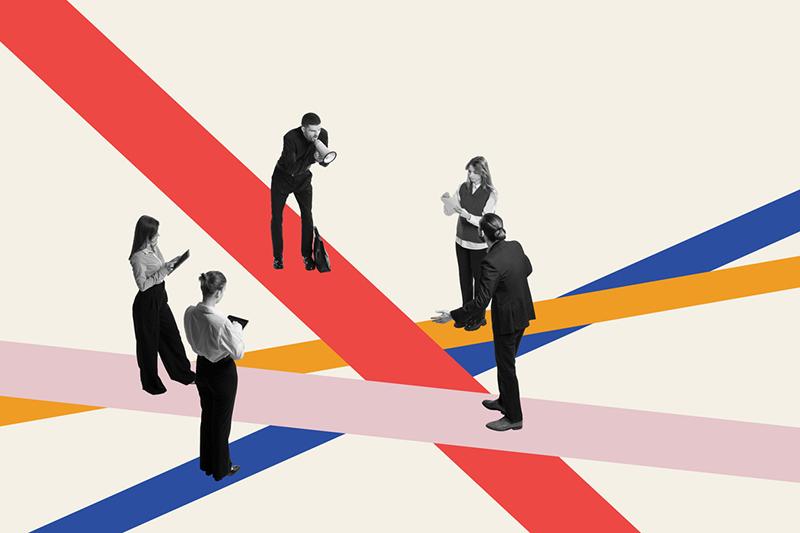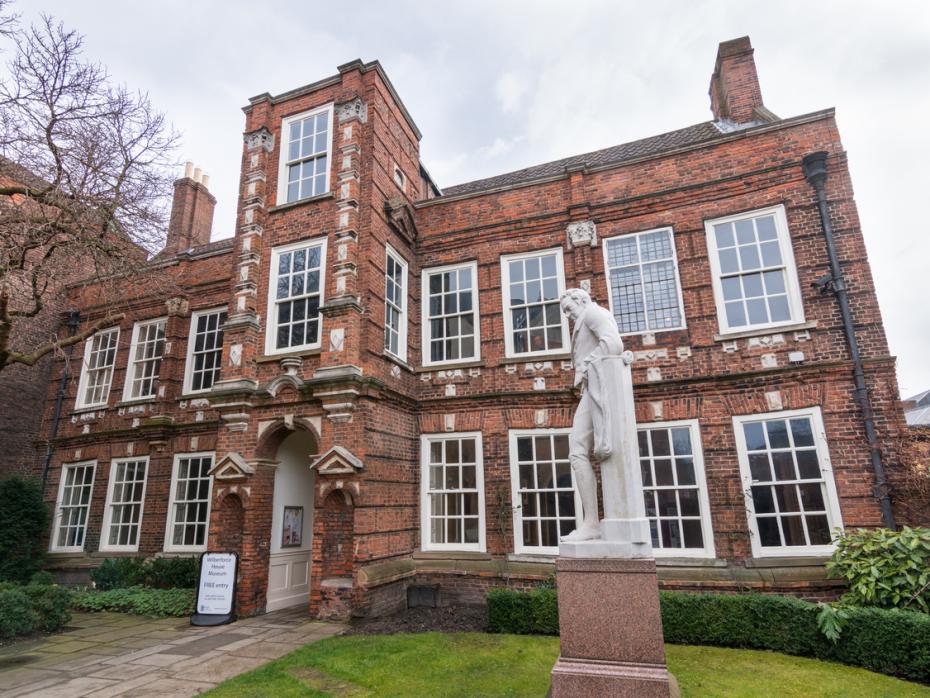Professional services staff help to drive university’s knowledge exchange activity by bridging the complex space between academic expertise, external partners, charities, business and non-commercial enterprises. This work requires a dynamic skill set, yet staff working in this space often lack structured professional development. If universities want to continue to drive real-world impact through knowledge exchange, then they need to nurture the careers of the professional services staff working in this field.
Fostering a culture of continuous professional growth
The University of Arts London (UAL) employs more than 100 professional services staff who work across design and fashion, performance, fine art, media and communications, bio-design, sustainability and immersive technologies to deliver innovation through collaboration and knowledge-sharing activities. But without a framework, it was challenging to support staff with their career ambitions, to offer meaningful professional development, or to improve recruitment and retention.
- Spotlight guide: What innovation needs to thrive in higher education
- Universities need to move interdisciplinary professional associations to the next step
- THE podcast: knowledge exchange and data management as drivers of research and innovation
We needed a structured, user-friendly framework, tailored to our creative environment, that would help guide our approach to career development. Our approach needed to acknowledge that while a traditional vertical career trajectory works for some, we live and work in an environment where sidesteps, and fluidity between roles, industries and specialisms, are the new normal. We wanted a framework that would empower staff to realise their potential and drive their careers.
What we did
Our careers toolkit, the Knowledge Exchange Careers Planner for Professional Services, is a one-stop shop of information for people working in knowledge exchange roles, linking to useful resources, guidance and advice on careers planning. At the heart of the planner is a bespoke knowledge exchange career framework that identifies the skills and behaviours that our staff have told us are crucial to their daily work. The framework provides clear pathways for personal and professional development, demystifying roles and clarifying transferable skills to support opportunities for growth.
The visual quality of the toolkit – including images of our students’ work, bold colours, an easy navigation system and accessible content – is as important as the framework. We didn’t want to create another tick-box exercise; instead, this toolkit is designed to inspire staff to take ownership of their own careers, engage in more meaningful career conversations with their line managers, and plan development activities more effectively.
How we did it
As a first step, partnering with HR consultants Let’s Talk Talent, we reviewed frameworks across the sector, asking: what feels relevant to our culture of creative innovation? What is core to working in knowledge exchange?
We then embarked on one-to-one meetings and focus groups with our staff to get their perspective. What skills and behaviours do front-line staff, managers and senior leadership consider important, both now and as our services evolve?
Next, we took a deep dive into UAL’s institutional ambitions for knowledge exchange. We asked what capabilities our staff would need to achieve these goals successfully.
Liaising with our HR department, we also need to find out how the framework might complement and support existing policies and resources around recruitment, retention, career progression and appraisal.
This wealth of data led to six key headings and descriptors for three career stages: everyone, management and leadership:
- partner engagement
- delivery focus
- service improvement
- relationship building
- collaboration
- learning mindset.
At a surface level, our headers seem fairly generic. What sets them apart, however, is the associated descriptors, which locate these attributes within the context of knowledge exchange, and the specific type of work that our professional services staff do, aspire to do, should be doing or will be doing.
Recognising the value of these descriptors, we iterated a more detailed set of development indicators and prepared a complementary set of role profiles to help staff identify their career stage, and where they might go next. Then we tested, sense-checked, simplified, cross-checked, tested and simplified some more.
How we use it
Staff and line managers now use the framework to inform formal careers conversations in probation reviews and tri-annual appraisals. The descriptors provide useful discussion starters, helping colleagues set clear development goals. We have also developed knowledge exchange careers workshops and mapped our staff development offer to align with the six core skills and behaviours.
The framework is also helping us diversify recruitment within our sector. We know we don’t always succeed in attracting job applicants from different professional backgrounds, sectors and demographics, and that recruitment practices exacerbate this issue for candidates and hiring managers. We are working to align transferrable skills with our knowledge exchange professional services roles to attract more diverse candidates.
Lessons learned
Creating and implementing the framework left us with three key takeaways.
- Trust the process: The volume of different skills may initially feel overwhelming. This is a natural part of refining and structuring data. Similarities and overlaps will emerge, allowing you to simplify the final framework.
- Less is more: An overcomplicated framework is unwieldy and risks discouraging engagement. It should serve as a flexible career conversation tool rather than an exhaustive checklist.
- Aim for practicality, not perfection: Define what “good enough” looks like and recognise that career frameworks evolve over time. Resist endless tweaking.
A pathway to career satisfaction
By fostering a supportive environment for knowledge exchange professionals, all institutions can enhance career satisfaction, improve retention rates and contribute to a more vibrant, innovative academic community.
The development and implementation of the planner at UAL marks a significant step towards fostering a culture of continuous professional growth within our institution. By tailoring our approach to the context of arts and design-oriented knowledge exchange, we not only support our staff in their roles but also equip them to thrive in their future careers. The framework helps staff identify training needs and career possibilities and encourages a sense of professional fulfilment, whether that involves moving sideways, upward, between departments or even transitioning out of our university. We want our staff to have the freedom to take whatever career path they need to lead fulfilling careers; and our framework helps them achieve this.
Jane Shepard is head of research and knowledge exchange staff development at the University of the Arts London and member of the KEUK professional standards committee.
If you would like advice and insight from academics and university staff delivered direct to your inbox each week, sign up for the Campus newsletter.




comment